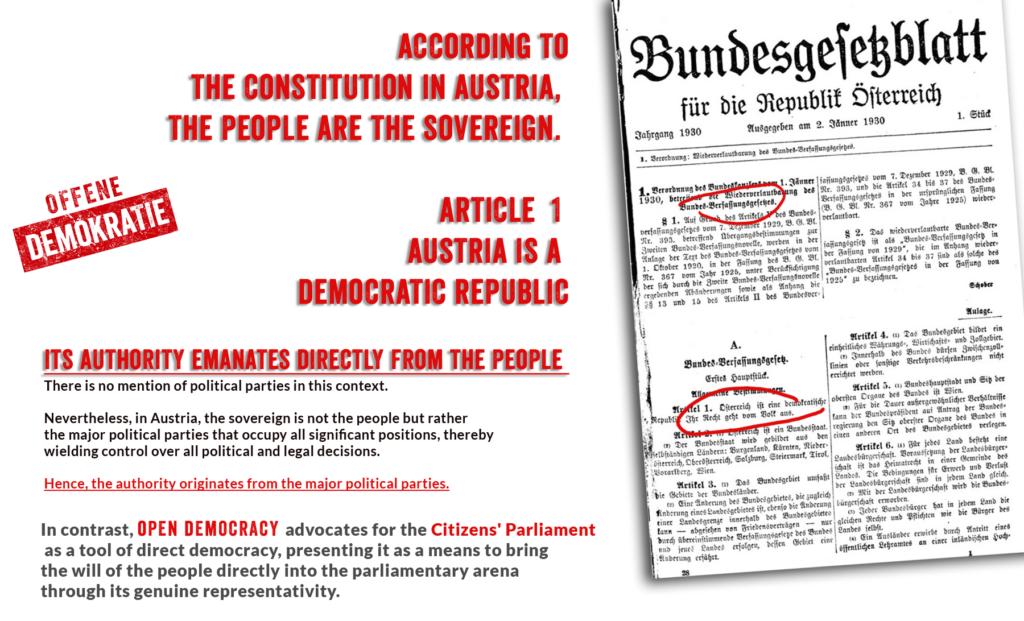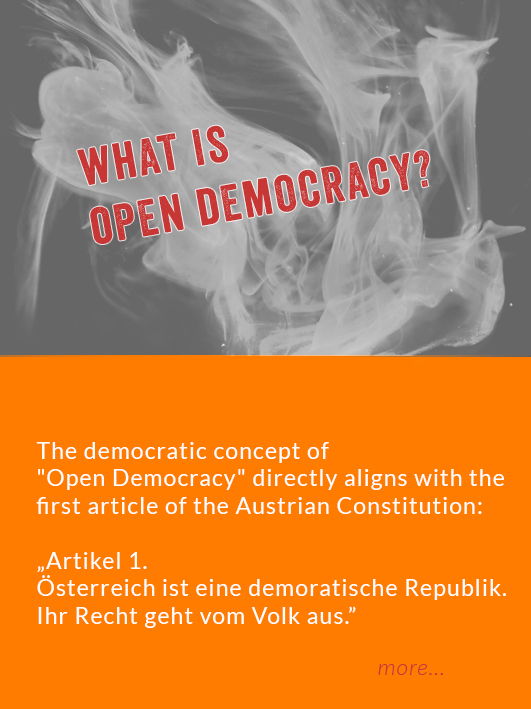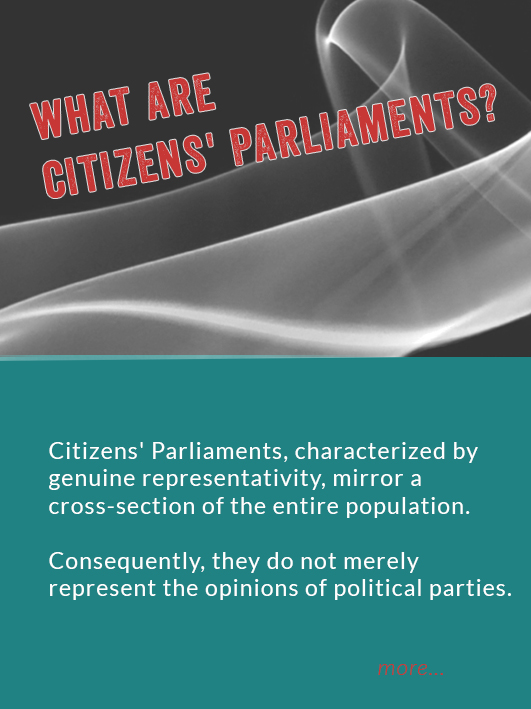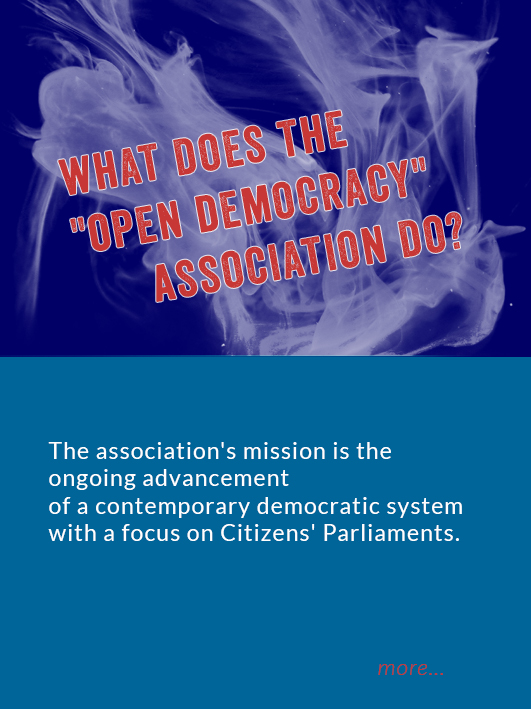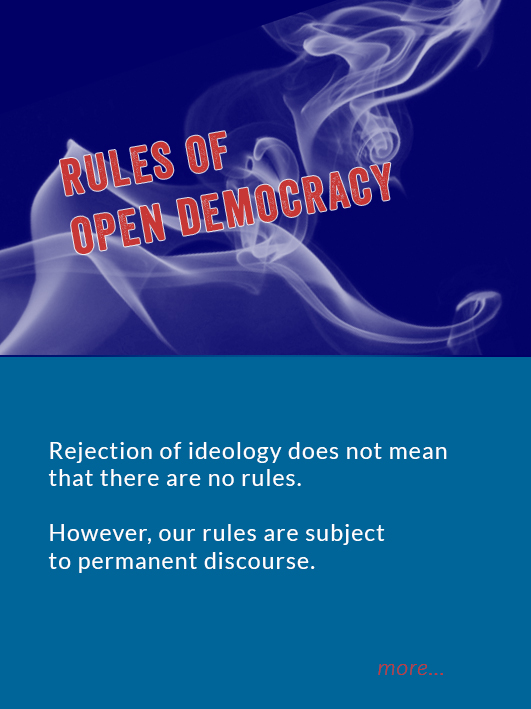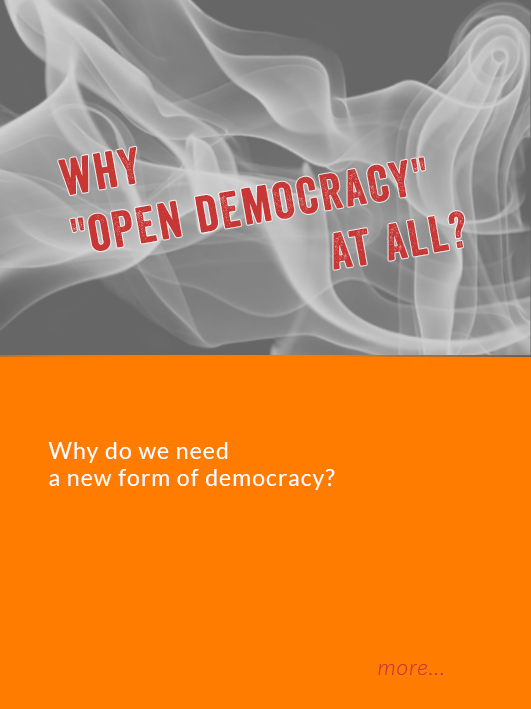The Austrian citizen is politically almost entirely powerless. Only during the election campaigns of major parties are we, the people, allowed to participate as mere pawns in the constant battle between parties. (Party: Latin, from „pars“ = part,…).
Citizens‘ Parliaments
replace the party struggle with cooperation. Here, by principle, all stakeholders come together in a representative assembly. This makes the Citizens‘ Parliament the most suitable direct democratic tool for developing substantive issues at the federal level.
Representativity
Statistically representative Citizens‘ Parliaments represent a contemporary method for capturing the general will of the population as broadly as possible in the 21st century. What sets the Citizens‘ Parliament apart from the current model is that its members are not selected by the most influential lobbyists but are drawn by lot from the entire population. Genuine representativity is achieved through a meticulous pre-selection process.
Information
The quality of every decision depends on the information used to make it. All the experts in our government could just as well advise Citizens‘ Parliament members. The outcomes of a Citizens‘ Parliament are thus determined by well-informed participants who only proceed to vote once all questions are clarified. In contrast, our politicians, understandably pressed for time despite substantial consultant costs, often lack an understanding of what they are deciding with their vote – that is, if they even make a party-independent decision (thus consistently violating the principle of the free mandate).
Self-Interest
Even in Citizens‘ Parliaments, individuals, like all politicians, naturally prioritize themselves and their constituents. Citizen parliamentarians are, by principle, committed to themselves and their own. This transforms self-interest into collective advantage, as representatives from all segments of the population are fundamentally involved in the decision-making process.
Accountability
Each Citizens‘ Parliament dissolves after publishing final mandates but not before establishing a meticulous oversight system that responds to any deviations with predefined actions, such as convening another Citizens‘ Parliament. In our current political landscape, neither decisions nor executions are subject to any oversight. Only substantial citizen protest has occasionally compelled corrections to some of the worst decisions after the fact.
Our Wiki
The Citizens‘ Parliament, as described on Wikipedia, is just a brief overview. Here is our dedicated Wiki with comprehensive information about the Citizens‘ Parliament and how it can be successfully organized.
